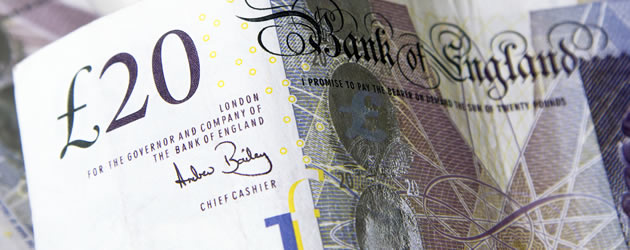Eurozone Gross Domestic Product figures due out later could give strength to a weakened EUR/GBP. For the moment political disruptions in Greece and Portugal continue to drag the common currency down across the board.
EUR/GBP Exchange Range Forecast: GDP Reports Could be Too Little, Too Late as Euro Suffers Trifecta of Bad News
The Euro has been substantially weakened across the board thanks to three pieces of bad news that have rocked the Eurozone and left traders anxious. Political turmoil in Portugal continues, with the centre-right government having been ousted by a coalition of socialists. An anti-austerity alliance looks set to take power, provoking fears that the heavily indebted country could be pushed back into financial crisis. The socialists intend to increase consumer spending to drive inflation by raising the minimum wage to €600, up from €505, and return the pay of government workers to pre-cut levels.
Tensions over the next tranche of Greek bailout money increased further in the wake of a 24-hour strike organised by union groups ADEDY and GSEE. The move saw hospitals, government buildings, ports and schools brought to a standstill, while 20,000 protestors marched in Athens. This is the first instance of industrial action faced by Prime Minister Alexis Tsipras and his Syriza party since they came to government. Tsipras won on the back of promises to end austerity, but was forced to abandon red-lines in return for securing Greece’s third bailout.
With traders waiting for news of European Central Bank (ECB) monetary policy, yesterday’s dovish speech by President Mario Draghi hinted at an increased stimulus package. The comments have sparked deflation fears, and further compounded Euro losses against all currencies except the Polish Zloty (PLN).
The EUR/GBP exchange rate is currently trending down 0.4%.
GBP/EUR Exchange Rate on the Rise After Positive UK Employment Data Boosts Pound Sterling
Pound Sterling continues to rise against the Euro, thanks to instability weighing on the single currency and the release of UK jobs data which finally gave strength to the flagging GBP. Quarterly Unemployment Change saw 177k jobs created in Q3, a rise of 37k on last month’s figures and 57k better than forecast for the quarter. On top of this unemployment fell by 0.1% instead of holding steady as expected.
After a week suffering little movement after the Bank of England’s (BoE) dovish inflation outlook and interest rate caution, the positive jobs figures gave traders some long-awaited evidence of a strengthening UK economy and saw Pound Sterling begin to rise. Lower unemployment has been linked to interest rate hikes, with the BoE predicting in 2013 that a fall below 7% would be an indicator that the UK economy was sufficiently strong to sustain higher interest rates. That theory has yet to be realised almost two years later, however.
The GBP/EUR exchange rate is currently trending between 1.4077 and 1.4161.
EUR/GBP Exchange Rate Forecast: Eurozone GDP Report Could Help Slow Euro Losses Against Pound Sterling
With the focus on Draghi’s monetary policy outlook and mounting Greek and Portuguese geopolitical tension, Eurozone Gross Domestic Product data due out later today could fail to have the desired impact of increasing investor confidence in the common currency. Third-quarter French GDP advanced by 1.2% on the quarter while German GDP saw WDA GDP gain by 1.7% instead of the forecast 1.8%. Third Quarter Eurozone GDP is predicted to rise by 1.7% but the shadow of current events could see negative factors continuing to dominate the EUR/GBP exchange rate, even if the pace of depreciation slows.
The EUR/GBP exchange rate is currently trading between 0.7059 and 0.7098.



